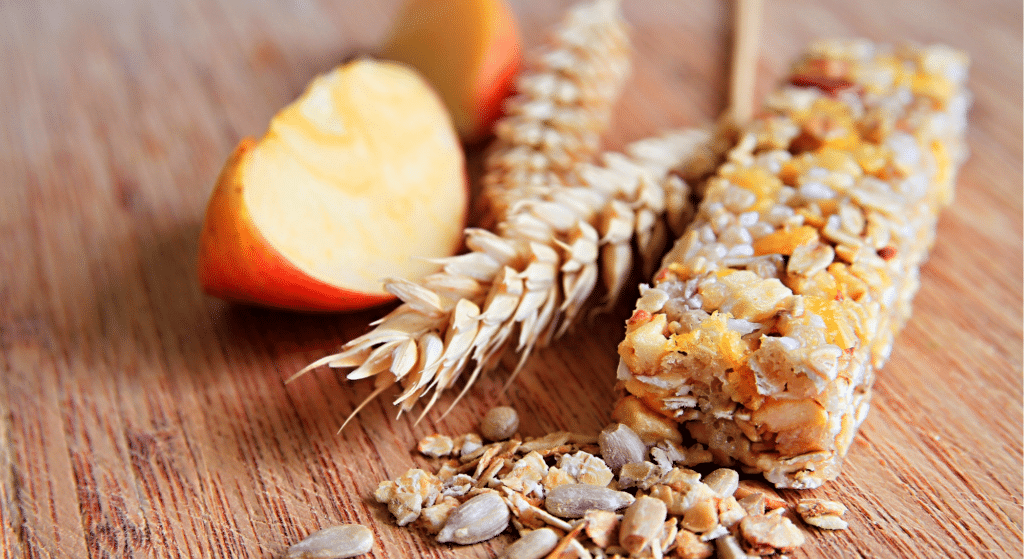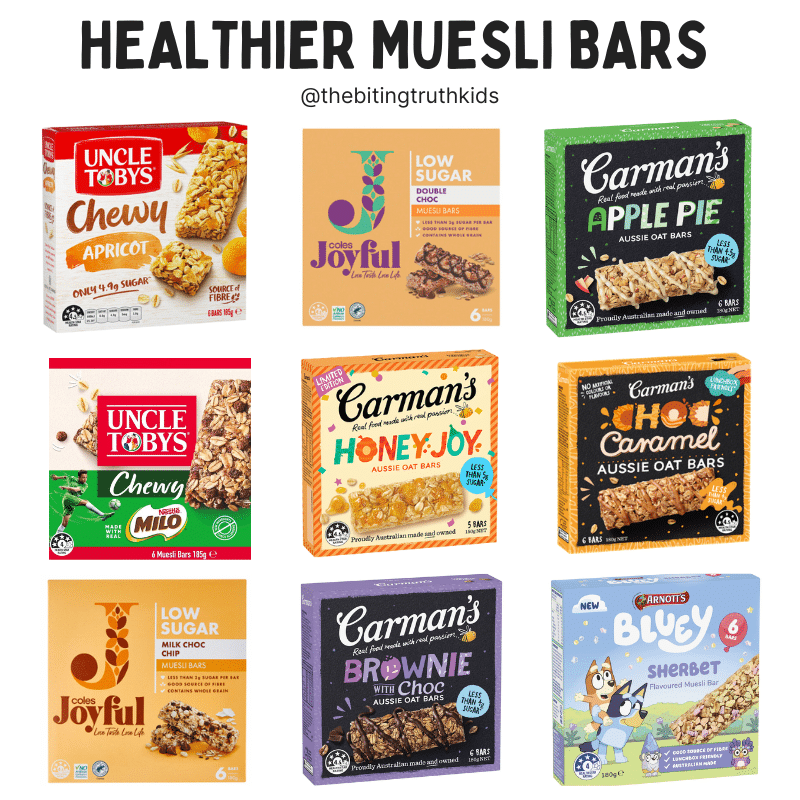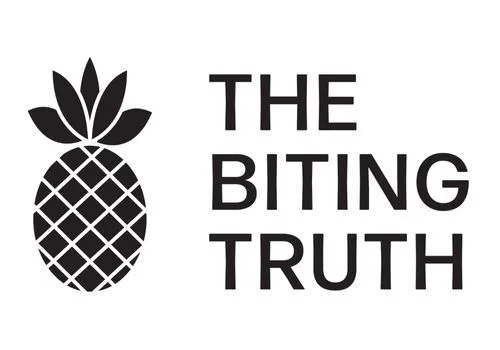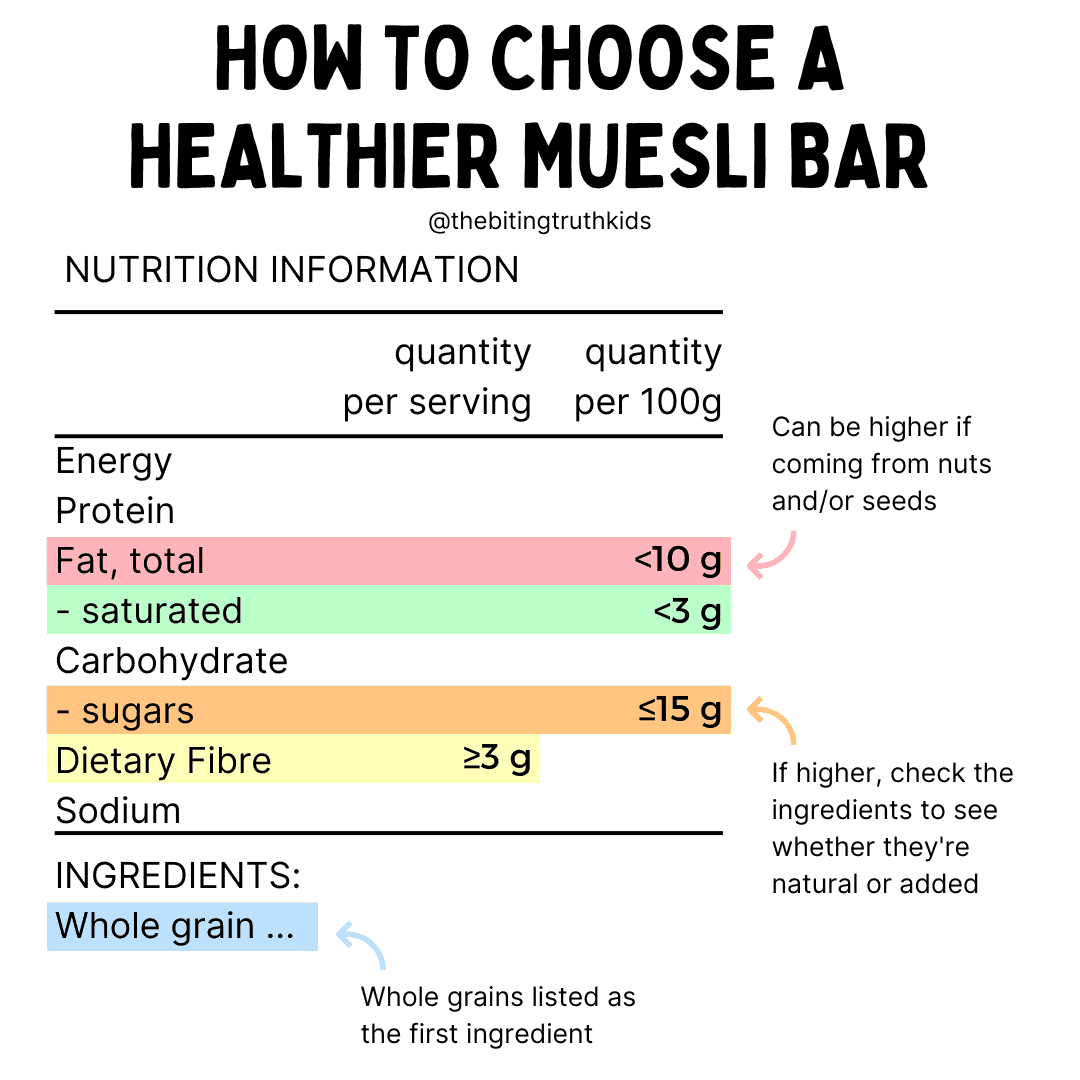
As parents, we juggle many hats, and never quite get to the bottom of our to-do lists. Packing school lunchboxes or simply coming up with healthy snack ideas to offer are daily tasks on that list, and knowing which snacks are the healthiest for your little one is a top priority.
The muesli bar aisle of the supermarket can feel like a sensory overload, with health claims, colours and flavours all screaming for attention. In this article we break down what to look for when choosing a muesli bar for your child and recommend some of our favourites.
Ingredients
Taking a peek at the ingredients list is a great place to start when evaluating a muesli bar. The ingredients list is written in descending order, which means the first ingredient in the list makes up the bulk of the product. Look for top ingredients such as wholegrains or rolled oats, which are less processed and contain more nutrients than refined grains or other fillers. Wholegrains are packed with fibre and good carbohydrates, providing your child with a source of energy and supports digestion for tummy love.
Sugars
Choosing a muesli bar high in sugar is something most parents fear. Despite this, a high sugar product (> 15g per 100g) may not be quite as bad as it seems. Here’s where we become ingredient detectives! Some sugars occur naturally, such as in fruit, so are not of concern to the product overall. What we do want to avoid are added sugars, which provide a surge of short-term energy, typically followed by a crash. If sugar, or another name for sugar is listed in the first 3 ingredients, it’s a good idea to look for a healthier alternative. Our general rule is to look for a muesli bar with less than ~15g of sugar per 100g.
Fat
Like sugar, there are both healthy and unhealthy sources of fat. A muesli bar high in fat which has more than ~10g per 100g might be packed with nuts and seeds, which are both ideal sources of fat for overall health and balance (but take note of the policy for your school or daycare, as nuts may not always be appropriate). On the other hand, saturated fats in muesli bars such as coconut oil or butter should be monitored and limited in a healthy diet. Check the nutrition information panel directly for saturated fat content, aiming for less than ~3g of saturated fat per 100g.
Fibre
Dietary fibre keeps little ones feeling full and feeds their friendly gut bugs for happy and healthy tummies. It also provides a source of energy, fuelling playtime and learning in the classroom. Fibre is important for overall health over the lifespan and can reduce your child’s risk of developing diseases such as heart disease, bowel cancer and diabetes – A real powerhouse! We recommend choosing a muesli bar with at least 3g of dietary fibre per serve.
Bottom Line
Just because a muesli bar sounds like a healthy snack, it might be a discretionary food in disguise. Being a nutrition detective is your best defence against sneaky sugars and saturated fats, and reading the nutrition information panel is the best place to start. Check out our favourite muesli bars below:

—
Notes
- Looking for some healthy recipes when it comes to the school lunchbox. Check out our School Lunchbox eBook.

